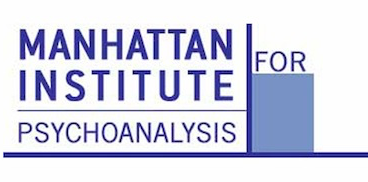By Vivek Anand, LMFT
On the first day of the Muslim holy month of Ramadan, I asked my South Asian client P whether they were fasting. I didn’t say this, but I wished to understand whether in addition to dealing with the end of the semester they were now also dealing with waking up before 5 a.m. to eat before sunrise and fasting without food and water until sunset. They said that they wanted to fast, but their father insisted they focus instead on their late assignments. Dad wasn’t fasting but Mom was, and this year, for the first time, P wanted to fast as well. “Do you do iftaari anyway?” I asked, referring to the evening meal after a day of fasting.
“Oh, no. I don’t wake up early enough for iftaari.”
“You mean sehri?” I clarified, referring to the meal before sunrise.
“Oh, yeah, I got mixed up. I meant sehri!” they said. “You know the lingo better than I do,” they added with a half smile revealing their curiosity and amusement.
They haven’t figured me out yet, or asked how I am so familiar with Islam and Urdu. I’m an Indian immigrant man with a Hindu name, brown, with a grey beard, probably the age of their parents. P doesn’t know I’m fasting this month, my second year doing so, and that I know much more than the lingo through my own study of Sufi songs and Islam.“How does it feel that I know some of this lingo?” I asked.
“Oh it’s a pro. It’s not a prerequisite, but it’s a pro,” they add, indicating to me that they regard my familiarity with Islam as an asset—as a pro, not a con.
My Pakistani singing teacher told me that you get sawaab, or spiritual merit, by doing iftaari and sharing this celebratory moment with others even if you don’t fast. Over the phone, he insisted that I ask Allah for du’a, a blessing, for him during iftaari. He added that my having not grown up in a Muslim family and still keeping rozey—the thirty or so daily fasts for Ramadan—at my age was a true calling, and proclamed: “Masha’Allah!”
I told my Kashmiri Muslim ‘sister’ that I wasn’t sure whether to tell my Muslim clients that I am fasting. I prefer to stay attuned to their experience, mirroring it with my knowledge without foregrounding my own experience. She thought this was probably a good idea. I have learned much from this Kashmiri sister about Islam, India, Pakistan, caste, Kashmir, and about what some of us call the ‘occupation’ of Kashmir, a term unpopular with most Indians. She and another—Indian Muslim—‘sister’ (my Bombay/Mumbai schoolfriend’s wife) were my beloved companions through fasting and much more, and we visit each other’s homes in Berkeley, California, whenever we can. My Indian Muslim sister advised me on how to maintain adequate energy and hydration, and gave me delicious food for my meals including chicken stuffed samosas and a savory porridge called haleem.
We named a three-person WhatsApp group Sibling Sohbet, to affirm our relationship and spiritual companionship. Over the app, I texted that it was difficult to function as a therapist without food or drink, and that sometimes it helped, too. Fasting reduced distractions, made me aware of my physical limitations, and encouraged me to be humble. They asked me to be kind to myself, to only fast on alternate days if I needed to. They invited me for iftaari and it was a blessing to eat with them, indoors now, because we have our vaccines. I was also allowed into the interior of their faith, one they were generously sharing with me.
We broke the fast together with dates and water while saying Bismillah, then ate a bit before we broke for namaaz, the prayer, and then went back to our meal, over which they shared details about the prayer and the month of fasting. I was sure to ask for du’a for many people—for my Muslim music teacher who has taught me many Sufi songs, my Hindu music teacher who has recently taught me her composition of a song by Kabir who is a saint revered by Hindu and Muslims in India, my supportive Japanese analyst who is learning more about Ramadan through me, these precious families fasting with me, my clients who were struggling, and other loved ones, in the US, in India, and in occupied Kashmir. Once, I prayed that the parents of my Indian sister would get access to their second vaccine doses. They got it, and called us joyfully while we were eating dessert.
My other South Asian Muslim client, B, tells me how difficult it was to wake up on her own for sehri and to eat by herself when she is back in her dorm room rather than at her parents’ home. “Moms make it so much easier.” She misses her mom, only half an hour away, but also appreciates the space for herself and to be with her non-Muslim boyfriend, who is fasting as well out of solidarity with her. “But I tell him he’s cheating, because he drinks water!” she adds with a laugh.
Her story reminds me of my Malayali mother fasting until moonrise, along with many North Indian Hindu women, for her husband’s health once a year on karwa chauth, and how my Hindu Punjabi father has sometimes accompanied her on the fast. Mom was born into a Christian home in Kerala, home to many religions including Judaism, Christianity and Islam for centuries, and converted when she married him. Punjab has historically been home to Islam, Sikhism and Hinduism. I fasted for Ramadan last year as well, and asked, then and now, for du’as for my mother’s health, precarious as of a year ago. My father says he is proud of me for fasting, and Mom found the ten minute taraweeh Arabic prayers I sent to her to be soothing. I hope to spend the month of June with her in Bombay/Mumbai and bring us both solace.
Another day when I too am moved by international events, a few days after the al Aqsa mosque in Jerusalem was stormed by the IDF while fasting Muslims prayed during the last Friday of the month of Ramadan, my second South Asian client B is worried about Palestine, but tells me that Instagram has become a performative platform, and that she is angry at fellow Muslims in Pakistan for trying to show that they are socially connected, for co-opting the struggle of the Palestinian people but still being pro-military in Pakistan and doing the same thing in Afghanistan. B calls Palestine and Afghanistan ‘open-air prisons’ and describes how her family’s region has also been a buffer zone; a reproduction of colonialism, constantly. I ask about her journey, and she speaks of her Left leaning parents and ancestors, of reading Frantz Fanon.
In our next session, a week after Ramadan has culminated in Eid, I point out that her family’s region, along with her bedroom in a full home, and her body, have all had to accommodate a lot. She agrees, saying that she feels it in her chest and wants to cry. I feel her pain. I am concerned for her, and ask her how she feels about our upcoming five-week break from sessions. She says that working on her past with me has helped her to be more patient with herself and realize that she doesn’t need to make everyone happy. I am encouraged to hear her say that she feels more confident now, and I feel better about not being here in June.
Vivek Anand, LMFT, is in private practice in Berkeley and is a recent graduate of the Manhattan Institute’s One Year Program in Psychoanalysis and the Sociopolitical World. He grew up in India and emigrated to the US in 1994 as a student. He sees adults and couples, has worked with young children, adolescents and families, and has provided group therapy for LGBTQ seniors. He is co-chair of the SFCP East Bay Psychotherapy Forum. Vivek has a previous career as an architect, has been teaching architectural design for more than a decade, and now teaches Clinical Relationship at CIIS in San Francisco. He is also a Hindustani classical and Sufi singer.
Read Part II here.
If you enjoyed this post, we recommend:








6 Comments
Leave your reply.